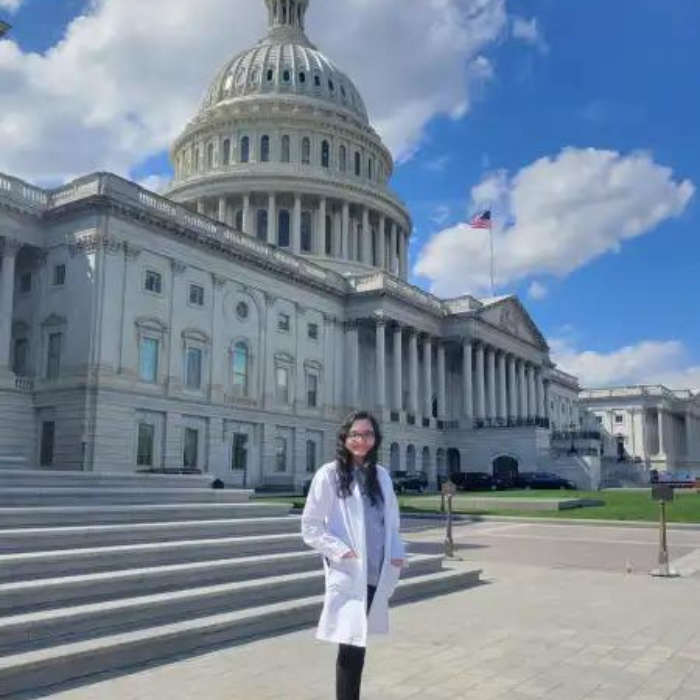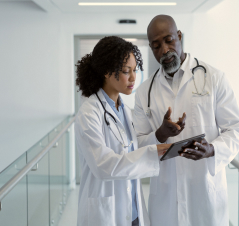Every year, the American Osteopathic Association (AOA) organizes DO Day on Capitol Hill, an opportunity for osteopathic physicians, residents, and medical students from across the country to come together and advocate on behalf of the profession. My interest in health policy began when I was an undergraduate. I completed a minor in Health Policy, which allowed me to take courses to better understand the biopsychosocial and systemic issues within the healthcare system that can influence a patient’s health. This was the first time I learned about social determinants of health (SDOH) and how a variety of upstream factors, such as access to primary care, food insecurity, and housing, can all determine a patient’s well being. As a medical student, I was passionate about developing this interest in health policy into direct advocacy efforts to effect change in the healthcare system, and DO Day provided the perfect opportunity. I was able to attend meetings directly with policymakers and their staff to share my personal stories and amplify our collective voice on key issues impacting our patients and profession.
It was even more important for me to continue these efforts as an osteopathic family medicine resident. In the clinic and the hospital, I saw firsthand how my patients struggled to get better, not because of anything they could control on an individual level but because of the larger systemic issues within the healthcare system. For example, patients struggling to find physicians that accept their insurance can directly impact the type of care they receive. Because of our patient care experience and medical expertise, I believe that as physicians we have an obligation to advocate for our patients and help address these systemic barriers. And while advocacy can take many different forms, one of my personal favorites is attending DO Day. I am extremely grateful to the AOA Training in Policy Studies (TIPS) fellowship program to have given me the opportunity to attend this year's DO Day.This year, DO Day focused on three topics: protecting access to patient care by improving Medicare physician payment system; advocating for safety of physicians and other healthcare workers by supporting the Safety From Violence for Healthcare Employees (SAVE) Act; and encouraging student loan reform by supporting the Resident Education Deferred Interest (REDI) Act. There was also a virtual platform the weekend prior, which increased our knowledge about these issues and ensured we would be prepared for our meetings on Capitol Hill. We also gathered together with other physicians and students from our state the day prior so that we could meet each other and create a plan for our meetings. Then, armed with the facts, our personal stories, and our shared desire to bring change, we put on our white coats and went to Capitol Hill to make our case. We each had different experiences to share that highlighted why it was important for Congress to act on these issues. For me, each conversation served as an opportunity to give voice to my patients and care for them beyond what is possible in the individual patient encounter. I ended the day feeling extremely thankful and inspired by the work we had accomplished.
Attending DO Day reaffirmed my belief in the power of collective advocacy to create impactful change in the healthcare system and advance our profession. I highly recommend this opportunity to all osteopathic physicians and students.






Leave a commentOrder by
Newest on top Oldest on top